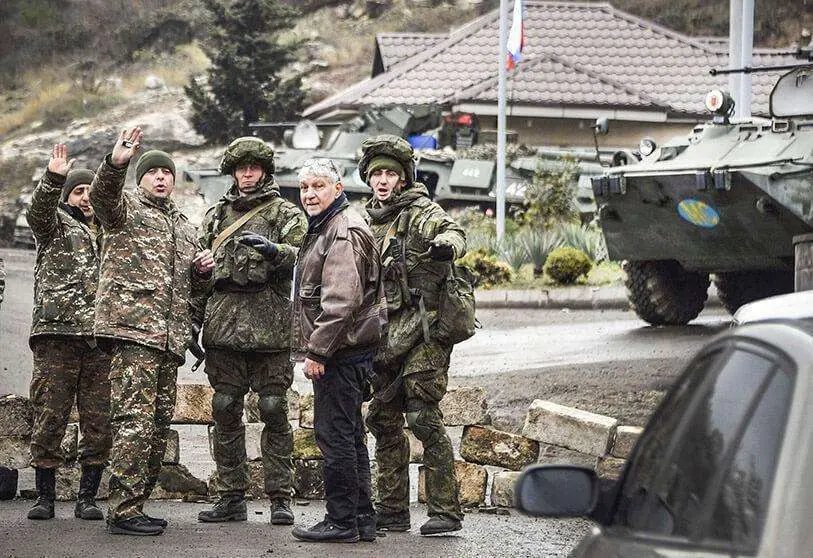Nagorno-Karabakh: Caucasian game for two or more participants

The ongoing struggle in Nagorno-Karabakh has led to another war with a consequent peace agreement that delights Azerbaijan, pains Armenia and makes new seasons of war possible. Beyond the concrete management of the situation in terms of fighting, displacement of populations, broken truces, military results and political consequences, this is another opportunity to attempt to understand the complexity of the conflicts from less simplistic perspectives.
The concept of subsidiary war is useful, although it involves internal elements and crossovers that are difficult to pigeonhole with external justifications. Armenia and Azerbaijan once again clashed over this originally Azeri region and de facto controlled by Armenians, but the braid of this proxy war has different levels: at the bottom there would have been fighters of the Kurdistan Workers' Party (PKK) and Syrian mercenaries, an offering that Turkey makes to its ethnic brothers and above all to its own influence growing through the Ottoman traces.
At first sight it would be a clash between two Turkic states, Turkey and Azerbaijan, and two Armenians, the Republic of Armenia and the Republic of Artsaj. The problem begins when other important players appear to be in the background.
Iran should turn to one of the few countries with a Shia majority. However, owing to its own Azeri population and the good relations between Azerbaijan and Israel, its alliance with Yerevan appears to carry more weight. Russia, for its part, is in a more complicated situation: with a historical responsibility for both post-Soviet states, it is opting for Armenia. However, for energy and weapons reasons it cannot let go of Baku. The official limits of Russia's two-way game are on Armenian territory, where Moscow would be obliged to intervene under the Collective Security Treaty Organisation. In the end, Russia managed to put its foot down intelligently and saved in extremis an Armenia that was heading for an even more crushing defeat.

Russia's ambiguous relationship with Turkey is once again reflected in a conflict in which, between the weight of the Armenian diaspora and Azeri gas, everything becomes entangled with France's involvement: here comes the height of regional tension; Paris and Ankara are accumulating friction that spills over into each other's blue homeland, that is, the seas. There, they become more imbued with their rivalry with history, ideology and religion.
Within a gallery of simply materialistic regional actors, France is drawing on its essence as is Turkey: the standard bearer of Western enlightenment and the most recent binder of Islam are lurking in a context of health crisis that overlaps social and religious conflict. The last trace of the cultural and interest border between the two countries with a vocation for leadership is drawn in a satirical weekly.
Azerbaijan is the jewel in the crown and everything would seem to indicate that this match ended in a clear triumph for Russia and Turkey. However, a simultaneous success is somewhat incongruous and furthermore Moscow's supposed masterstroke could be imitated by others from a higher level: in this delicate game of overlapping zones of influence it is possible to hand over small plots of mutually assured wear and tear or modest victories as fun manoeuvres to reap some fruit. France does not enjoy this privilege, so it must plan its next move; bearing in mind that the next Secretary of State grew up in Paris, the board could become more comfortable.

